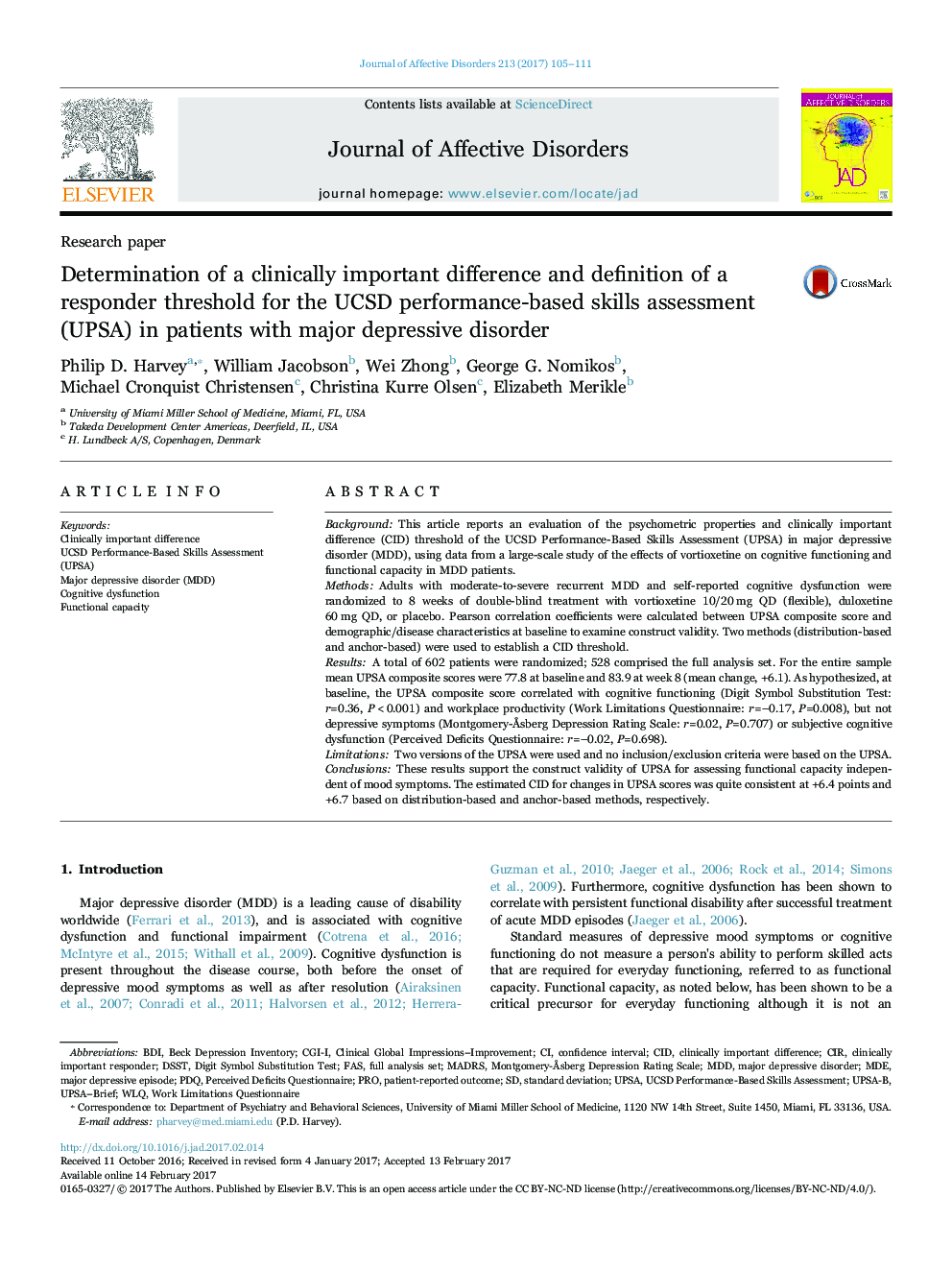| کد مقاله | کد نشریه | سال انتشار | مقاله انگلیسی | نسخه تمام متن |
|---|---|---|---|---|
| 5722233 | 1608112 | 2017 | 7 صفحه PDF | دانلود رایگان |

- UPSA was developed for schizophrenia patients and can predict real-world functioning.
- We evaluated the psychometric properties of the UPSA in patients with MDD.
- We also used two methods to determine a CID and CIR threshold for this population.
- Construct validity was established in patients with moderate-to-severe MDD.
- The CID and CIR methods support an UPSA increase of 6-7 points as meaningful.
BackgroundThis article reports an evaluation of the psychometric properties and clinically important difference (CID) threshold of the UCSD Performance-Based Skills Assessment (UPSA) in major depressive disorder (MDD), using data from a large-scale study of the effects of vortioxetine on cognitive functioning and functional capacity in MDD patients.MethodsAdults with moderate-to-severe recurrent MDD and self-reported cognitive dysfunction were randomized to 8 weeks of double-blind treatment with vortioxetine 10/20Â mg QD (flexible), duloxetine 60Â mg QD, or placebo. Pearson correlation coefficients were calculated between UPSA composite score and demographic/disease characteristics at baseline to examine construct validity. Two methods (distribution-based and anchor-based) were used to establish a CID threshold.ResultsA total of 602 patients were randomized; 528 comprised the full analysis set. For the entire sample mean UPSA composite scores were 77.8 at baseline and 83.9 at week 8 (mean change, +6.1). As hypothesized, at baseline, the UPSA composite score correlated with cognitive functioning (Digit Symbol Substitution Test: r=0.36, P<0.001) and workplace productivity (Work Limitations Questionnaire: r=-0.17, P=0.008), but not depressive symptoms (Montgomery-Ã sberg Depression Rating Scale: r=0.02, P=0.707) or subjective cognitive dysfunction (Perceived Deficits Questionnaire: r=-0.02, P=0.698).LimitationsTwo versions of the UPSA were used and no inclusion/exclusion criteria were based on the UPSA.ConclusionsThese results support the construct validity of UPSA for assessing functional capacity independent of mood symptoms. The estimated CID for changes in UPSA scores was quite consistent at +6.4 points and +6.7 based on distribution-based and anchor-based methods, respectively.
Journal: Journal of Affective Disorders - Volume 213, 15 April 2017, Pages 105-111